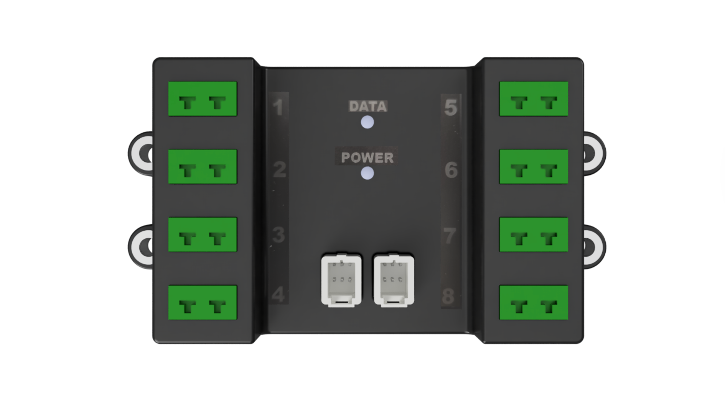Metis Engineering has launched its eight-channel isolated thermocouple to CAN module, designed to meet the demanding temperature monitoring requirements of industrial, automotive and research applications.
Each channel is isolated to 1,000V DC, making the device “a significant advancement in thermocouple technology”, Metis said. The device offers accuracy of ±0.5°C from 0°C to 85°C and ±1°C from -40°C to 125°c.
Key features
The module measures temperatures from -200°C to +1,800°C at sampling rates of up to 40Hz per channel. Each channel features galvanic isolation exceeding 1,000V DC, enabling safe and accurate temperature measurement in high-voltage systems such as battery packs, power electronics and electric vehicle components. This isolation eliminates current paths through thermocouple leads for reliable measurement accuracy by preventing ground loops and electrical interference that can compromise temperature readings.
“This new thermocouple module addresses the critical need for high-precision, multi-channel temperature monitoring in demanding industrial environments,” said Joe Holdsworth, founder and CEO at Metis Engineering. “The combination of isolation, accuracy and CAN bus integration makes it an ideal solution for applications where temperature monitoring is mission-critical.”
The device features comprehensive fault detection capabilities, including open-circuit and short-circuit detection that alerts users when thermocouple wires are broken, disconnected or shorted to ground or power.
Industrial-grade design and integration
Engineered for harsh industrial environments, the module with potted electronics features DIN rail mounting and IP67-rated JWPF connectors that enable daisy-chaining with additional modules for expanded measurement capabilities. The design supports input supply voltages from 9V to 32V, making it compatible with a wide range of industrial power systems.
The device comes standard with K-type miniature thermocouple connectors and supports multiple types — K, J, T, N, S, E, B, and R — letting users choose the best option for their application.
CANbus integration
With configurable CANbus speed and address plus a supplied DBC file, the module integrates easily into existing CAN networks, ideal for automotive and industrial automation applications.
“The CANbus integration reflects our commitment to providing sensors that integrate seamlessly into modern industrial and automotive systems,” said Holdsworth. “Engineers can quickly deploy multiple channels of high-precision temperature monitoring without complex integration challenges.”
In related news, Free access to Laba7 Shock Dyno Software announced


